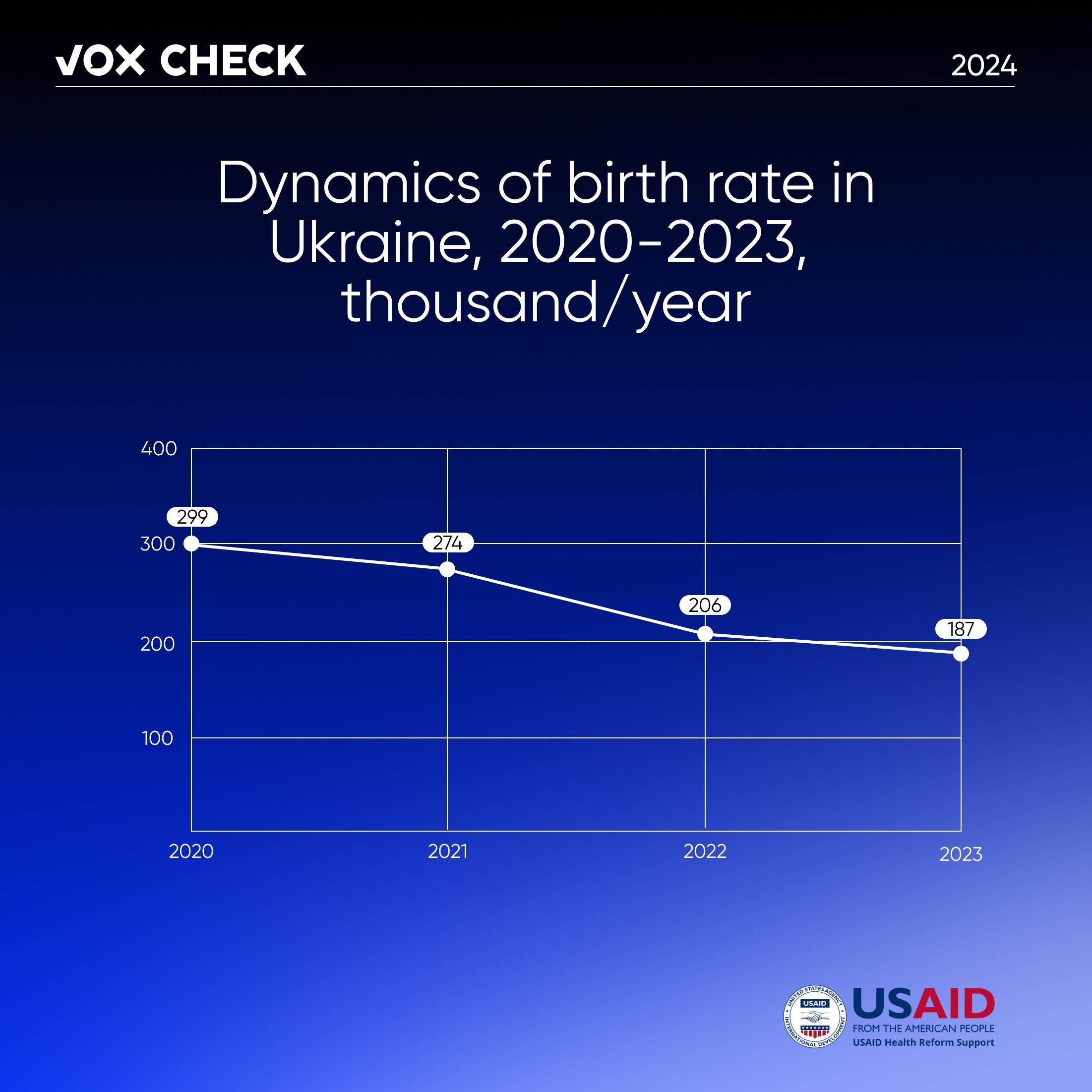Propagandists often use the experience of one person (usually an anonymous message, whether real or fabricated) to form a general thesis. For example, they discredit the Ukrainian and European healthcare systems, supposedly based on the words of a refugee from Ukraine.
With the support of the USAID Health Reform Support project, VoxCheck analyzes and refutes public health narratives spread in the information space of Ukraine, Belarus, and russia on a weekly basis.
A review by a Ukrainian refugee regarding foreign and domestic medicine is being spread online, claiming that Ukraine is adopting the “negligent” European approach to obstetrics and gynecology. The author presents several points, including:
- In Europe, early pregnancy diagnosis is not conducted, and there is no monitoring of whether the pregnant woman is taking enough vitamins or if she has a sufficient iron level in her blood.
- Labor in hospitals is artificially induced, and there are no postpartum check-ups.
- Doctors do not recommend following a diet while breastfeeding.
What’s the reality?
In Europe, the European Standards of Care for Newborn Health (ESCNH) are in effect. Countries are recommended to follow these standards when drafting local laws, directives, and protocols, adapting them to local circumstances. The standards cover topics such as childbirth, medical care for the mother and child, intensive care, nutrition, hygiene, ethical decision-making, palliative care, safety, and data collection.
Early pregnancy diagnosis and postpartum examination of the mother and child (with the participation of a pediatrician) are part of European medical standards. The foundation of medical practice here is proper patient information and providing consultative support. That is, patients are not commanded but offered additional examinations or vitamin courses.
Since August 2022, Ukraine has implemented the “Normal Pregnancy” medical care standards. According to these standards, early monitoring of pregnant women (before 12 weeks of pregnancy) is an indicator of the quality of medical care. Postpartum care is also included in the clinical protocol “Physiological Labor“, starting immediately after childbirth and continuing up to 42 days. Postpartum care includes:
- Monitoring during the first 2 hours after childbirth.
- Monitoring the well-being of the mother and child (temperature, blood pressure, pulse, etc.).
- Supporting early breastfeeding (“skin-to-skin” contact).
- Informing and advising the mother during care and after discharge.
According to the basic principles of Ukraine’s health legislation, all medical institutions must adhere to medical care standards and clinical protocols.
The practice of artificial labor induction does exist, but it is used under specific indications. Labor induction is not a mandatory procedure. In both Europe and Ukraine, it is offered in cases of delayed natural labor beyond 41 weeks of pregnancy, if the water breaks too early (evaluating infection risks and premature birth risks for the fetus), or if there are health problems with the mother or child.
Regarding diet, European doctors indeed do not advise women to restrict their diet during breastfeeding. It is recommended that the mother eats a full and balanced diet based on the “healthy plate” principle. This means her diet should include vegetables, fruits, meat, fish, eggs, legumes, nuts, whole grains, and dairy products. In Ukraine, mothers may be advised to follow a hypoallergenic diet if it is found that the mother’s diet provokes colic in child. In such cases, the mother will be advised to avoid milk, eggs, wheat, and nuts during breastfeeding.
Proper nutrition for the mother during breastfeeding and supporting motherhood, in general, not only affect the health of infants but also are part of a broader demographic strategy in the context of declining birth rates. The Ministry of Health of Ukraine reports a systematic decline in birth rates, which has only intensified after the full-scale invasion. “Birth rates in Ukraine have been falling by approximately 7% per year since 2013. The full-scale war has led to the most significant birth rate crisis. In 2023, an average of about 16,100 children were born each month. In previous years, before the full-scale invasion, the number of newborns ranged from 21,000 to 23,000 per month,” the ministry notes.
Source: “Opendatabot” service
This information piece was produced with the assistance of the United States Agency for International Development (USAID), provided on behalf of the people of the United States of America. This article’s content, which does not necessarily reflect the views of USAID, the United States Government, is the sole responsibility of Deloitte Consulting under contract #72012118C00001.
Attention
Автор не є співробітником, не консультує, не володіє акціями та не отримує фінансування від жодної компанії чи організації, яка б мала користь від цієї статті, а також жодним чином з ними не пов’язаний



